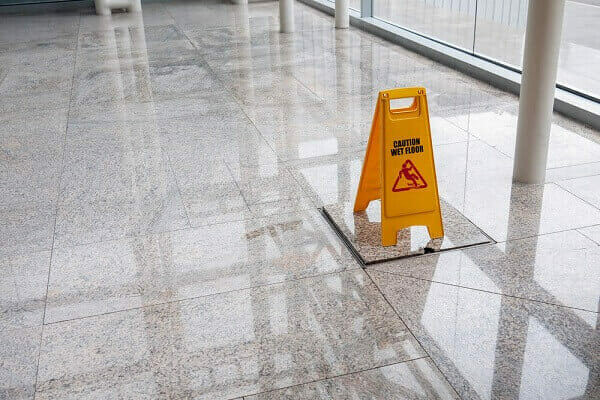CALL NOW FOR A FREE CONSULTATION:888-407-2955
Have you purchased a new car recently, but something isn’t right with it? Whether it is the brakes, transmission, engine or steering, you suspect you have bought a lemon. But just because you think the car is a lemon does not mean the law agrees.
Each state has its own lemon law to deal with the problem of malfunctioning new cars still under the original manufacturer’s warranty. Some states also protect the buyers of used cars.
Below is an overview of lemon laws, how to determine whether your car is a lemon, and what to do if you do have a lemon vehicle.
Some consumers handle the lemon law claim process themselves, but you may find it beneficial to hire an attorney experienced in lemon law claims.
What Is a Lemon?
Under the lemon laws of most states, a vehicle is a lemon only if it has a ‘substantial’ defect covered by the warranty that occurs within a certain time after you buy it. Next, you must continue to have the same serious problem after a ‘reasonable number’ of attempts to fix it at the dealership. What a ‘substantial’ defect is will vary by state, but generally it is a defect that affects the safety, value and/or drivability of the vehicle.
For example, a loose cupholder that cannot be fixed is not going to be viewed as a possible lemon claim because it does not substantially affect your ability to use the vehicle. Nor are the value and drivability substantially affected. But if the brakes suddenly fail without warning, Some states also protect the buyers of used cars, often with the assistance of a used car lawyer.
The legal line between a substantial and minor defect is not always so clear, and the standard will vary by state. Problems such as a bad paint job may seem like a minor issue, but some states have found this to be a substantial defect.
No matter the state, your car’s defect must happen within a certain period or certain number of miles driven.
What Is a Reasonable Number of Repairs?
If your vehicle has a substantial defect, the dealer or auto manufacturer is allowed a certain number of attempts to fix the problem before the car is called a lemon. In most states, four repair attempts are deemed reasonable, but it can be as low as a single attempt if the problem seriously affects safety. If you believe you might have a lemon, consulting with a defective vehicle lawyer can provide guidance. Most states also have regulations saying that if the car is in the shop for a certain number of days each year to fix a defect, it is a lemon.
Federal Consumer Protection
Each state has its own lemon laws, but the federal Magnuson-Moss Warranty Act also protects the owners of lemon vehicles.
This law protects the buyer of any sort of product with a price of more than $25 that has a written warranty. This law is designed to prevent manufacturers from writing unfair warranties and allows the consumer to bring a claim under the law to recover attorney’s fees that are paid during the legal action. If you think the terms of your warranty are unfair, you should talk to a lemon law attorney; he or she should be able to tell you whether the terms of the warranty are unfair under the law.
Are Used Car Owners Protected?
Lemon laws in most states are generally used to cover new vehicles that are purchased or leased, but some states also cover used cars. Some states have coverage for used cars that have a certain number of miles. Others may only cover vehicles that have been sold once. Others offer protection only if the used vehicle would have been covered under the original manufacturer’s warranty. Check the lemon law in your state to see whether your used vehicle is protected. You also can talk to a lemon law attorney who can quickly give you the answer and advise you.
What are the Remedies for a Lemon?
If your vehicle meets the criteria for a ‘substantial’ defect and a ‘reasonable’ number of repair attempts, then you qualify for lemon-law protection. You have the right to get a refund or a replacement vehicle from the dealer. First, you must inform the auto manufacturer of the defect, but they should be aware of it already because of the several repair attempts made. If the dealership or manufacturer does not offer a settlement that you like, you may need to go to arbitration before you file a lemon law lawsuit.
What Is the Arbitration Process?
Lemon law arbitration is a free, non-judicial process, similar in nature to how accident claim lawyers handle disputes. In this process, an arbitrator (or a panel of several) analyzes both sides of the lemon claim dispute to reach a decision about what the remedy should be. Depending upon the state, you or the manufacturer may choose a state consumer protection agency program. If you have a choice, many experts agree that the state program is better because they are not as likely to be unduly influenced by the auto manufacturer.
The Lemon Law Claims Process
 In California, there are potentially a number of different ways to pursue a Lemon Law claim.
In California, there are potentially a number of different ways to pursue a Lemon Law claim.
Arbitration decisions are generally binding in most states for the manufacturer but can be appealed in court by the consumer. Thus, if you do not like the decision the arbitrator makes, you still can sue the auto manufacturer in court. But if you do accept the ruling of the arbitrator, the manufacturer has no recourse and the case is over.
How to Win a Lemon Law Case
Whether you are in arbitration or in a lemon law lawsuit, there are things you can do to increase the chances of winning your case. Consumers who have plenty of documentation of their case will do better than those who do not. You should have all receipts and service records to show how many times and how long the vehicle was in the shop. It also helps to have phone records to show how many times you contacted the dealership.
Lemon laws in all states have been established to protect consumers, but winning a lemon law claim can be challenging on your own. Talking to an experienced lemon law firm expertise can increase your odds of prevailing. If the attorney thinks you have a strong claim, he or she will take the case, and if you win, the manufacturer is required to pay your legal fees.
To learn more about filing a lemon law claim in California, contact Neale & Fhima online or call us at (888) 407-2955 to speak to one of our attorneys.


 Aaron Fhima is a trial attorney who has secured numerous settlements and verdicts against large corporations and some of the largest auto manufacturers in the world. Representing consumers and injury victims throughout the state of California, Aaron’s practice areas include personal injury, and lemon law litigation. Aaron has a long record of success taking on large defense firms; and he doesn’t hesitate to take cases to trial when necessary to enforce his clients’ rights. [
Aaron Fhima is a trial attorney who has secured numerous settlements and verdicts against large corporations and some of the largest auto manufacturers in the world. Representing consumers and injury victims throughout the state of California, Aaron’s practice areas include personal injury, and lemon law litigation. Aaron has a long record of success taking on large defense firms; and he doesn’t hesitate to take cases to trial when necessary to enforce his clients’ rights. [ 












